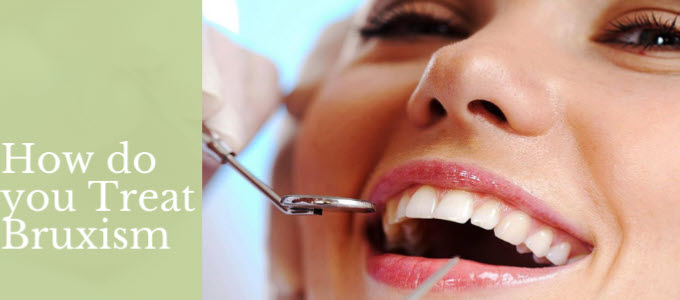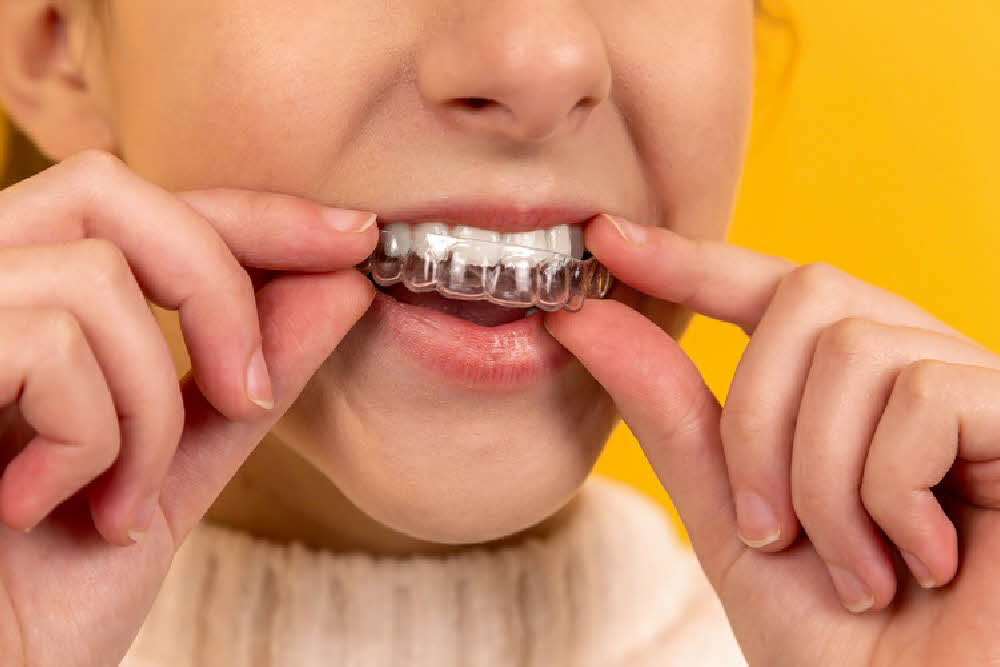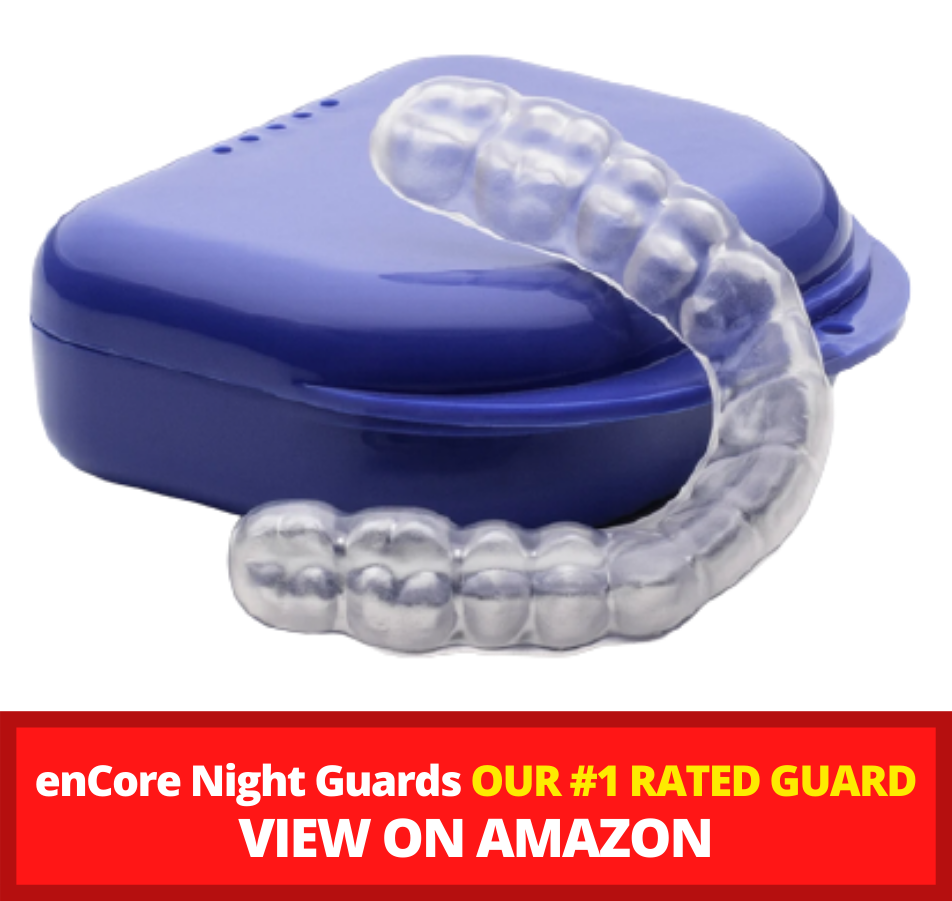Table of Contents

About 8% to 16% of adults and 14% to 20% of children suffer from bruxism. Also known as teeth grinding and teeth clenching, bruxism is a condition that makes an individual to grind or clench the teeth. It can occur when you are sleeping or when awake. Bruxism that occurs when an individual is sleeping is referred to as sleep bruxism and awake bruxism if it occurs when the individual is sharp (1).
Sleep bruxism is also considered a sleep disorder. In most cases, individuals who grind their teeth when sleeping suffer from other sleep disorders like sleep apnea and snoring. While mild bruxism does not require treatment, it can lead to headaches, damaged teeth, and headaches if it is severe and frequent.
Understanding the common signs and symptoms of teeth grinding is the best thing to do since you might not be aware of it until you develop complications. It is also crucial to seek routine dental care to minimize the damage and the symptoms. Keep reading to discover how you can treat bruxism.
The Causes of Bruxism
Learning more about bruxism causes is the first thing you should know to discover how to treat this condition. Bruxism is caused by a combination of various genetic, physical, and psychological factors. Let us look at the causes of bruxism below:
- Sleep Bruxism
Sleep bruxism is a sleep-related disorder that occurs when an individual is asleep. The individuals start to clench and grind the teeth due to arousals.
- Awake Bruxism
Awake bruxism occurs when an individual is awake. It is caused by various factors, including stress, anxiety, tension, and frustration. It can also be a habit when an individual is in deep thought or a coping strategy.
Symptoms of Bruxism
Although it is difficult to know if you have bruxism, learning about the common signs of teeth grinding will allow you to deal with the condition before it gets out of hand. The following are the symptoms of bruxism:
- Excessive Tooth Wear
Bruxism flattens the biting surface, forming notches at the gum line of the teeth.
- Tooth Fracture
Another symptom of bruxism is loose teeth due to the failure of the dental restorations.
- Hypersensitive Teeth
You may feel dental pain when you drink cold fluids if you have bruxism. Grinding, gnashing, and clenching your teeth will make the dentin and enamel of your dental pulp wear out.
- Cheek Damage
Due to the constant chewing of the inside of your cheek, it can cause damage.
- Tight and Overlooked Jaw
Your jaw may have difficulty closing and opening entirely due to bruxism. It also causes pain and tenderness.
- Sleep Disruption
Bruxism causes loud teeth gnashing and clenching that may cause sleep disruption for your partner.
- Burning Sensation on the Tongue
Marks of the teeth cause a burning sensation in the tongue.
- Risk Factor of Bruxism
So many factors increase the risk of bruxism. The following are some of the risk factors of bruxism:
- Stress
In case you are frustrated, anxious, or angry, you may form a habit of teeth grinding and clenching.
- Other Disorders
Bruxism is also common in people with mental health issues and disorders such as dementia and sleep apnea.
- Age
In most cases, children develop bruxism, but it goes away as they grow.
- Medication
There are certain types of medication and recreational drugs that may increase the risk of bruxism. Some of these substances that can increase the risk of bruxism are tobacco smoking and the taking of alcohol.
- Personality Types
Another thing that can increase bruxism is your personality type. Aggressiveness and hyperactivity can increase the chances of teeth clenching.
- Family Members
If there is a history of bruxism in your family, there is a high chance other members of your family may also develop bruxism.
How to Treat Bruxism
Although moderate bruxism does not cause serious complications, it can lead to severe complications if it gets out of hand. That is why it is essential to treat the condition before it gets out of hand. Keep reading to discover how dentists treat bruxism:

Diagnosis
The first thing your dentist will do before starting treatment is to check for signs of bruxism. This will happen during the regular dental exams.
Evaluation
After the diagnosis, your dentist will conduct an evaluation. The evaluation takes several visits. During the visits, the dentist will look at your teeth and mouth to note any changes. The dentist will determine if the change is progressive and decide whether you should continue with treatment.
Identifying the Cause
Your dentist will proceed to identify the cause after determining that you have bruxism. To do that, the dentist will ask you questions about your sleep habits, medication, dental health, and daily routines. The dentist checks to see if your jaw muscles are tender. Moreover, the dentist will also go ahead and check for typical abnormalities like missing and broken teeth. Your dentist will conduct an X-ray to check for damage on your teeth, inside your cheeks, and underlying bone.
The dentist may also conduct a dental exam to check for temporomandibular joint (TMJ) and other dental issues. Your dentist might refer you to a sleep medicine specialist if a severe sleep condition causes your bruxism. Your dentist will direct you to a licensed therapist if physiological issues cause the condition.
Treating Bruxism
Treatment for teeth clenching is not necessary. Teeth grinding in adults is not severe, and children outgrow bruxism after some time. However, it is advisable to seek immediate help if the condition gets out of hand. Treatment options for bruxism range from dental care, medications, and therapies. Here is an in-depth look at various treatment options:
Dental Approaches
Your dentist might recommend dental correction and splints and mouth guards. However, these methods can only control teeth grinding.
- Therapies
Various therapies, including stress or anxiety management, behavior change, and biofeedback, can also be used to stop bruxism.
- Medications
You can also turn to medication to treat bruxism. Your dentist might recommend muscle relaxants, mediation for stress and anxiety. The dentist might also recommend Botox injections if you have severe bruxism.


